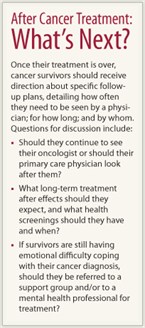When I was first diagnosed with breast cancer in 1979 there was no global movement to raise awareness of the disease, there were no pink ribbon pins to show support, and there was no Internet with which to search for information. My doctor gave me the news on a Friday night, and the following Monday I had a mastectomy on my left breast. Everything was urgent. I had this cancer and it had to be treated right away. I was just 25 and I didn’t understand a lot of what was going on, even though I was a nurse. I didn’t have anything about my diagnosis in writing, and I couldn’t find anyone my age to talk to about having breast cancer. I just acted on fear.
Twenty years later, I had a second breast cancer diagnosis, but this time I was able to gather information. I took my time, I got a second opinion, and I weighed my options. I decided to have a mastectomy instead of a lumpectomy because I felt that having had cancer before and having it now, I would likely have it again. I took control.
What has been such a privilege for me as a patient navigator is to be able to interact with patients on a daily basis, to listen to their fears and assess their stress level. I can also relate to their emotional pain. I remember a patient saying to me, ‘You have no idea of what I’m going through.’ I explained that even though everyone’s experience with cancer is different, I, too, am a breast cancer survivor and I understand what fear feels like. I understand what grief feels like and what it feels like to lose a breast and miss it. We were able to connect through our shared experiences of grief and loss.
Developing a Survivors’ Care Plan
 In my professional experience the biggest fear that breast cancer survivors have is of recurrence, followed by uncertainty and death. They also have ongoing health concerns about the long-term side effects of treatment. Body image and sexual dysfunction are another two big issues for breast cancer survivors, yet doctors rarely raise these problems with their patients, and many women are often reluctant to bring them up themselves. Encouraging women to be more open about their concerns and to ask questions would go a long way in alleviating some of the challenges associated with a cancer diagnosis.
In my professional experience the biggest fear that breast cancer survivors have is of recurrence, followed by uncertainty and death. They also have ongoing health concerns about the long-term side effects of treatment. Body image and sexual dysfunction are another two big issues for breast cancer survivors, yet doctors rarely raise these problems with their patients, and many women are often reluctant to bring them up themselves. Encouraging women to be more open about their concerns and to ask questions would go a long way in alleviating some of the challenges associated with a cancer diagnosis.
Having a universally adopted survivors’ care plan following cancer treatment would also greatly improve both the emotional and physical lives of cancer survivors. After cancer treatment is completed, survivors should be given explicit information about their follow-up care (see box).
Loss and Change
When I was recovering from my first bout with breast cancer, I couldn’t stop thinking about what I went through, and then one day I woke up and I didn’t think about breast cancer until lunchtime and I thought, “This is a good day.”
In addition to fear, feelings of loss are always present in breast cancer survivors. It is not just the sense of loss over a missing breast, however, it’s a lot of things. It’s losing your self-identity and thinking you are no longer who you were. As medical professionals, we have to acknowledge the losses and changes patients face and guide them in their transition through the stages of treatment and beyond. ■
Ms. Stewart is a nurse and breast health educator at the Johns Hopkins Avon Foundation Breast Center in Baltimore.

